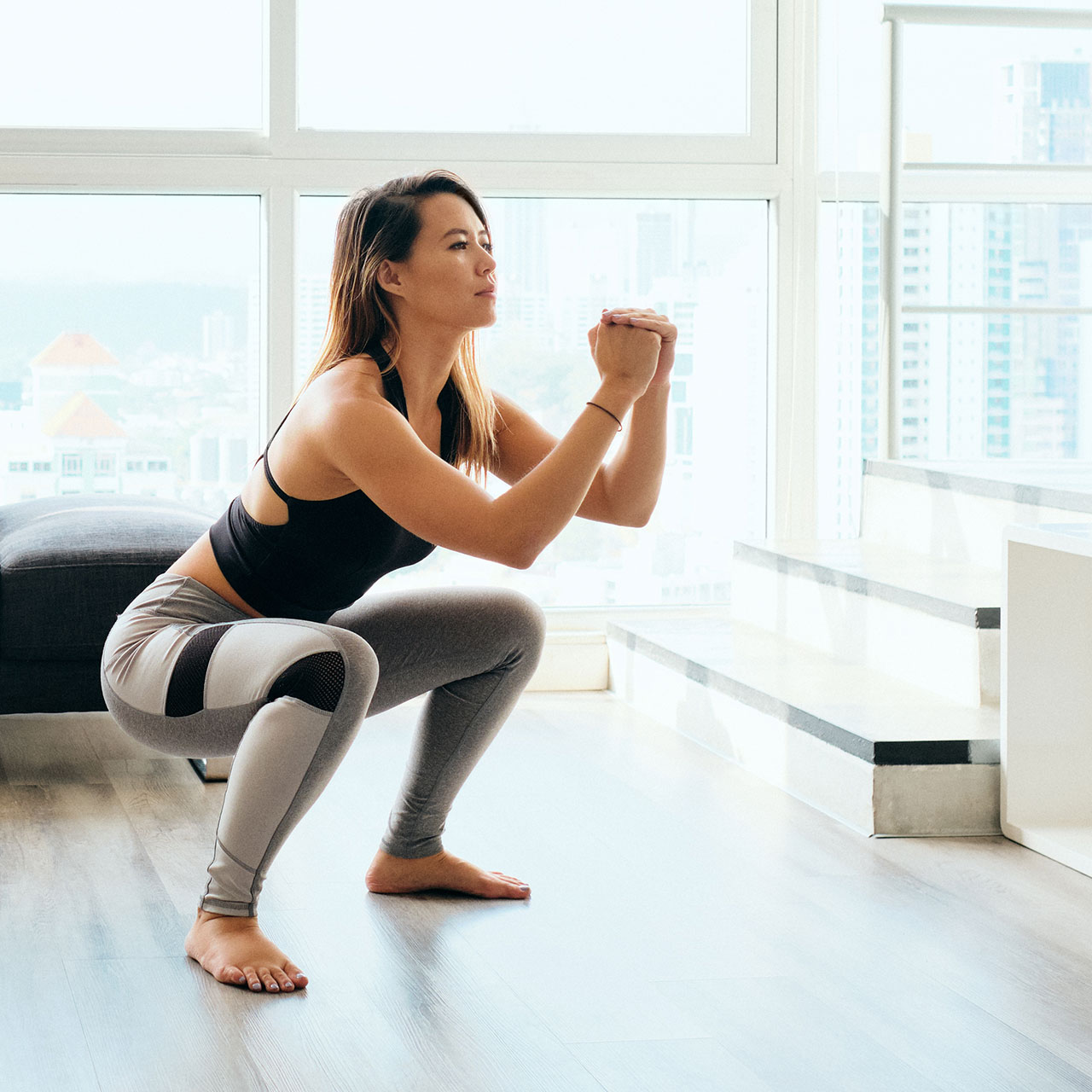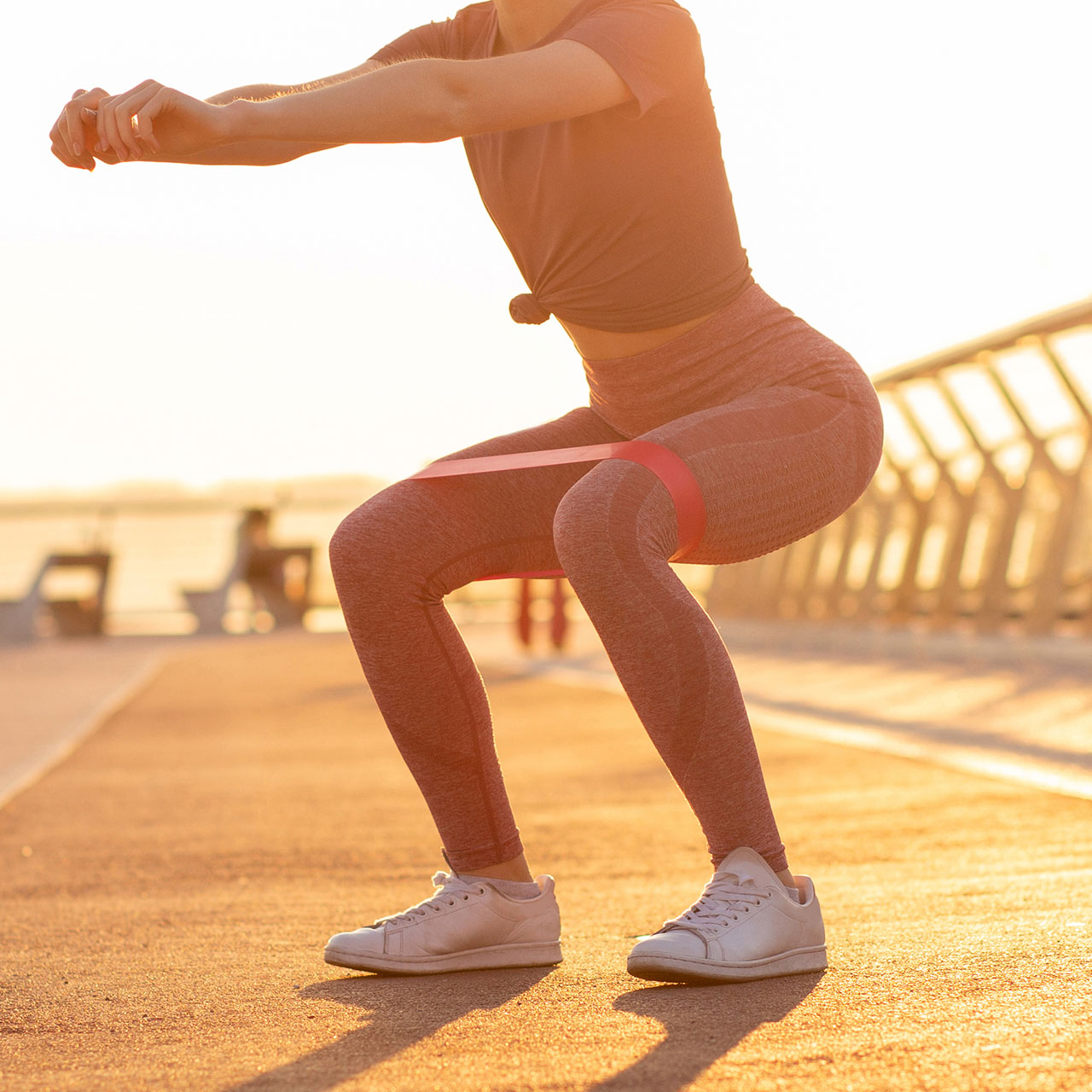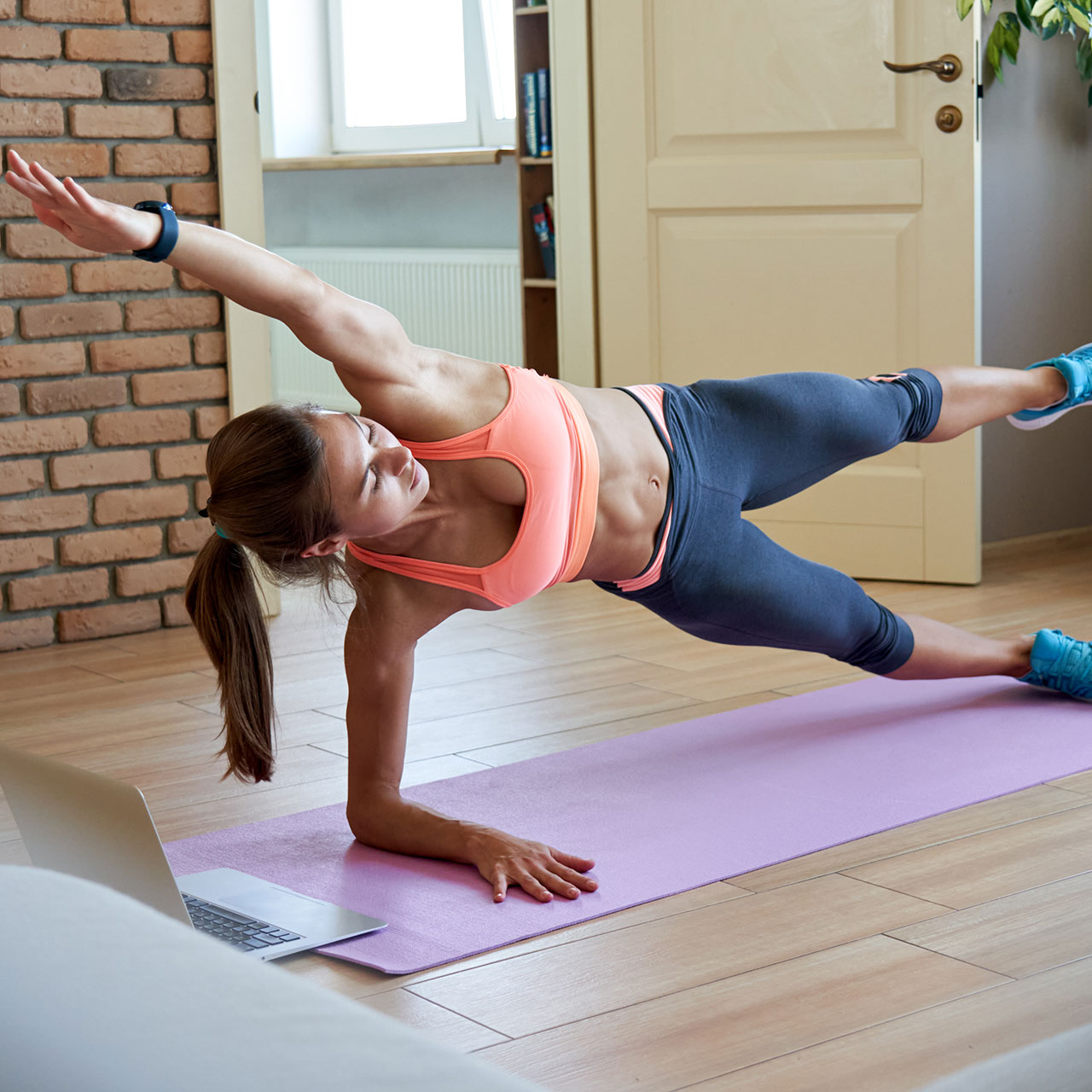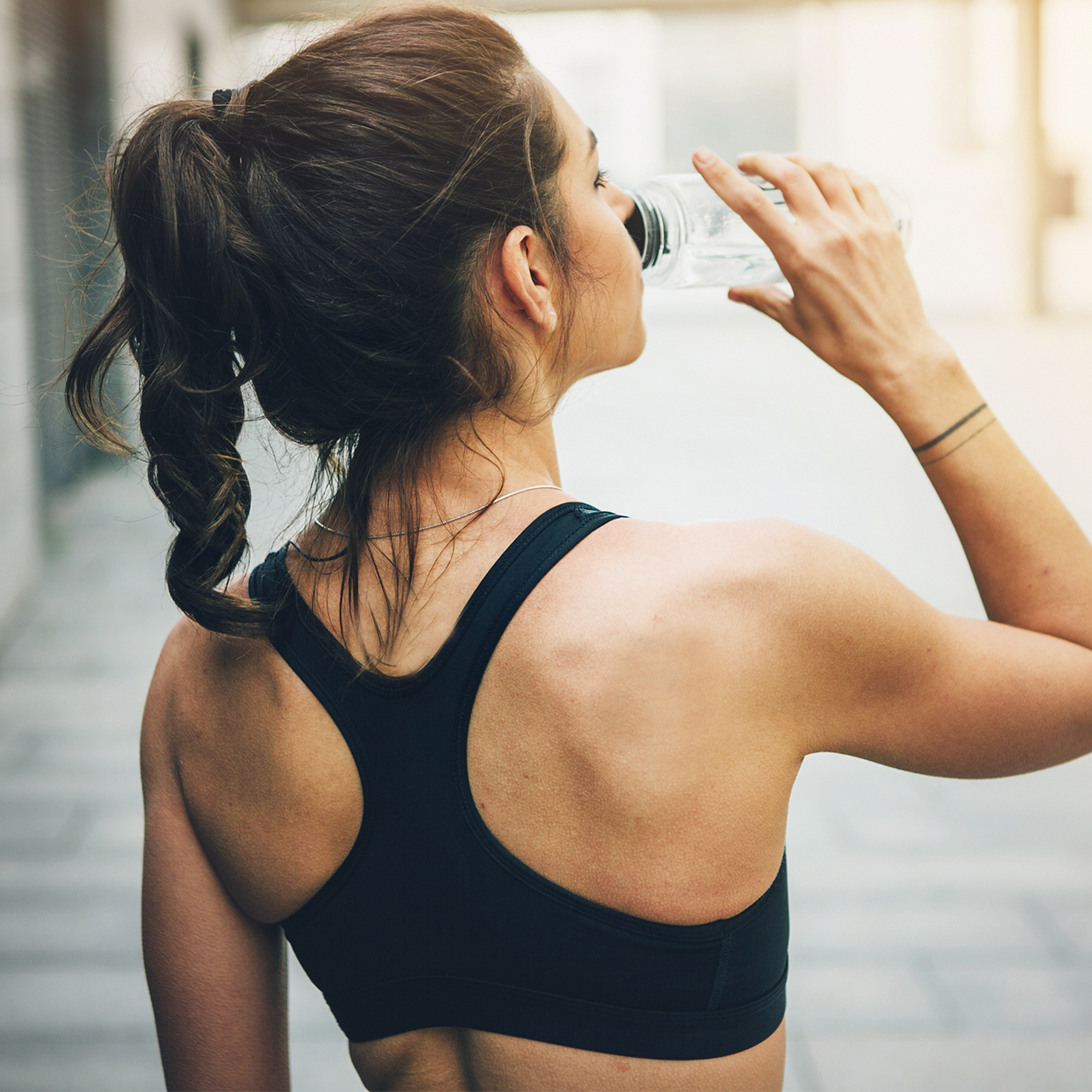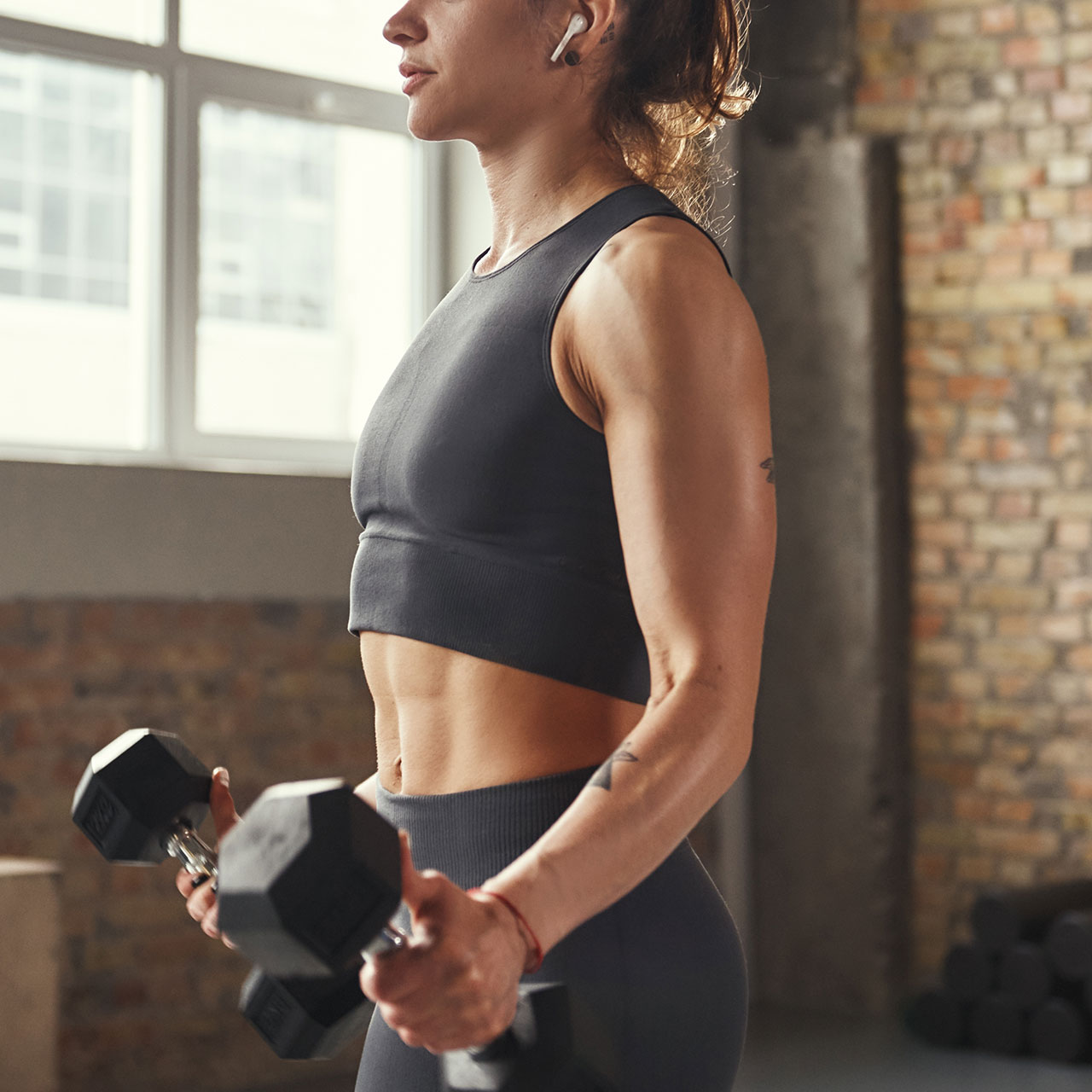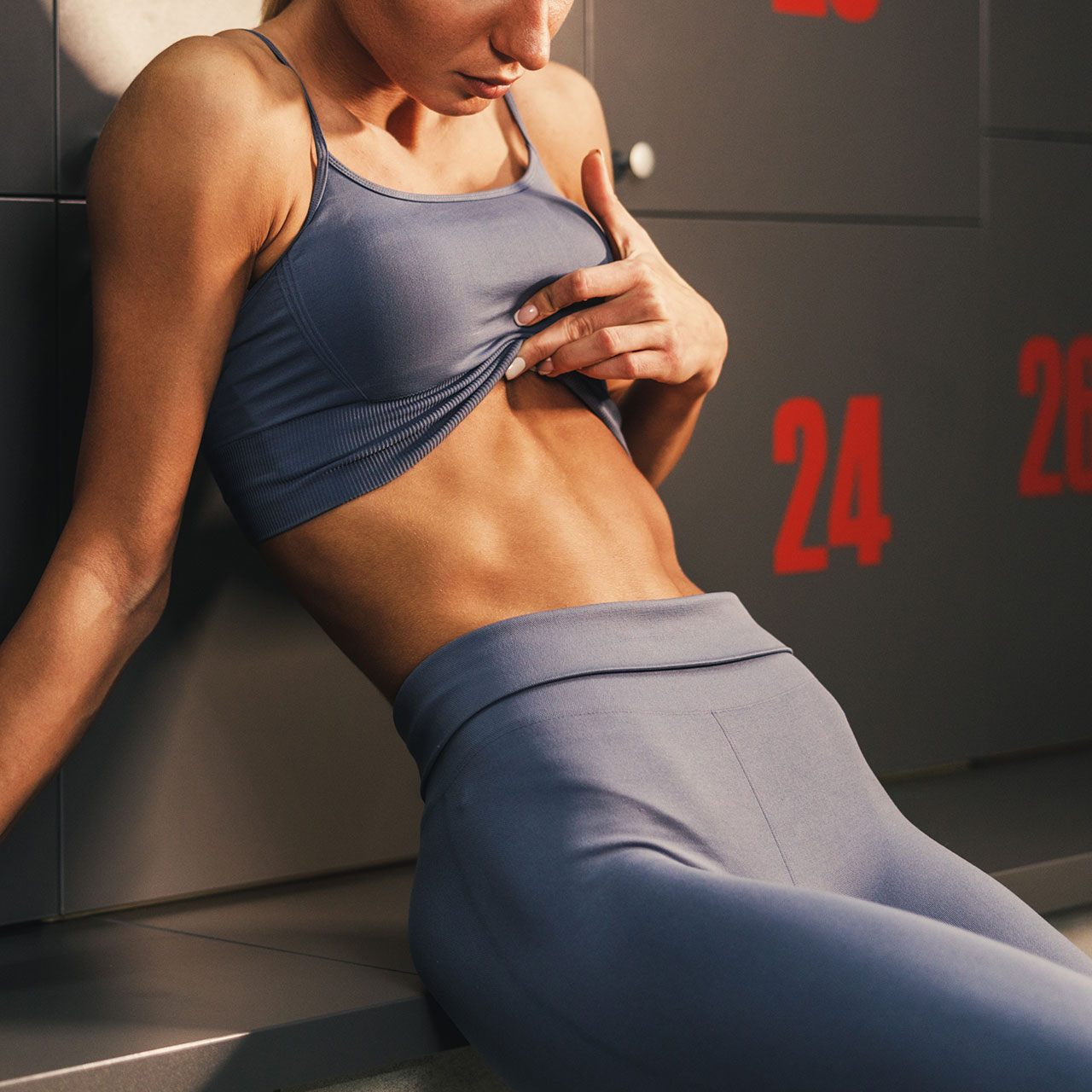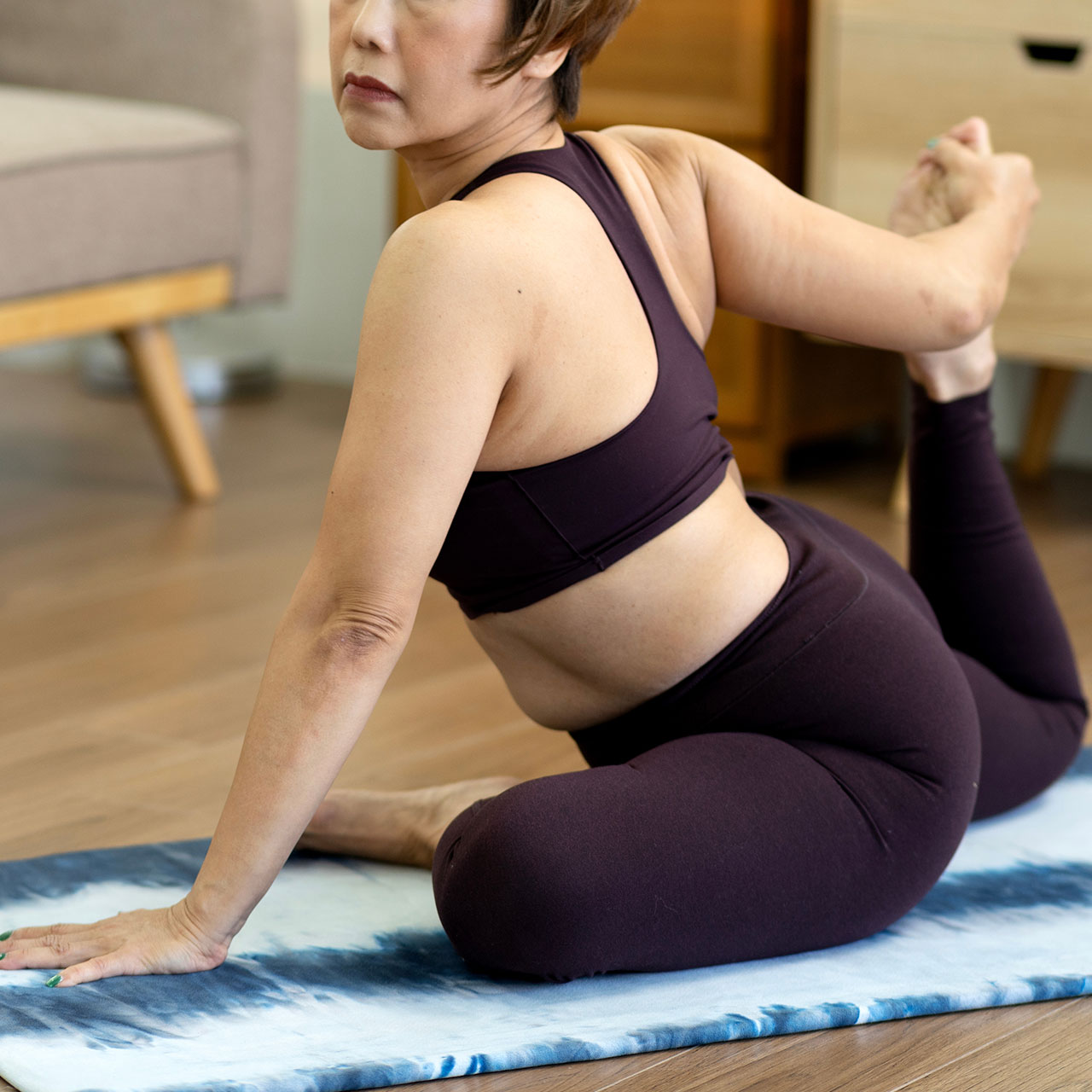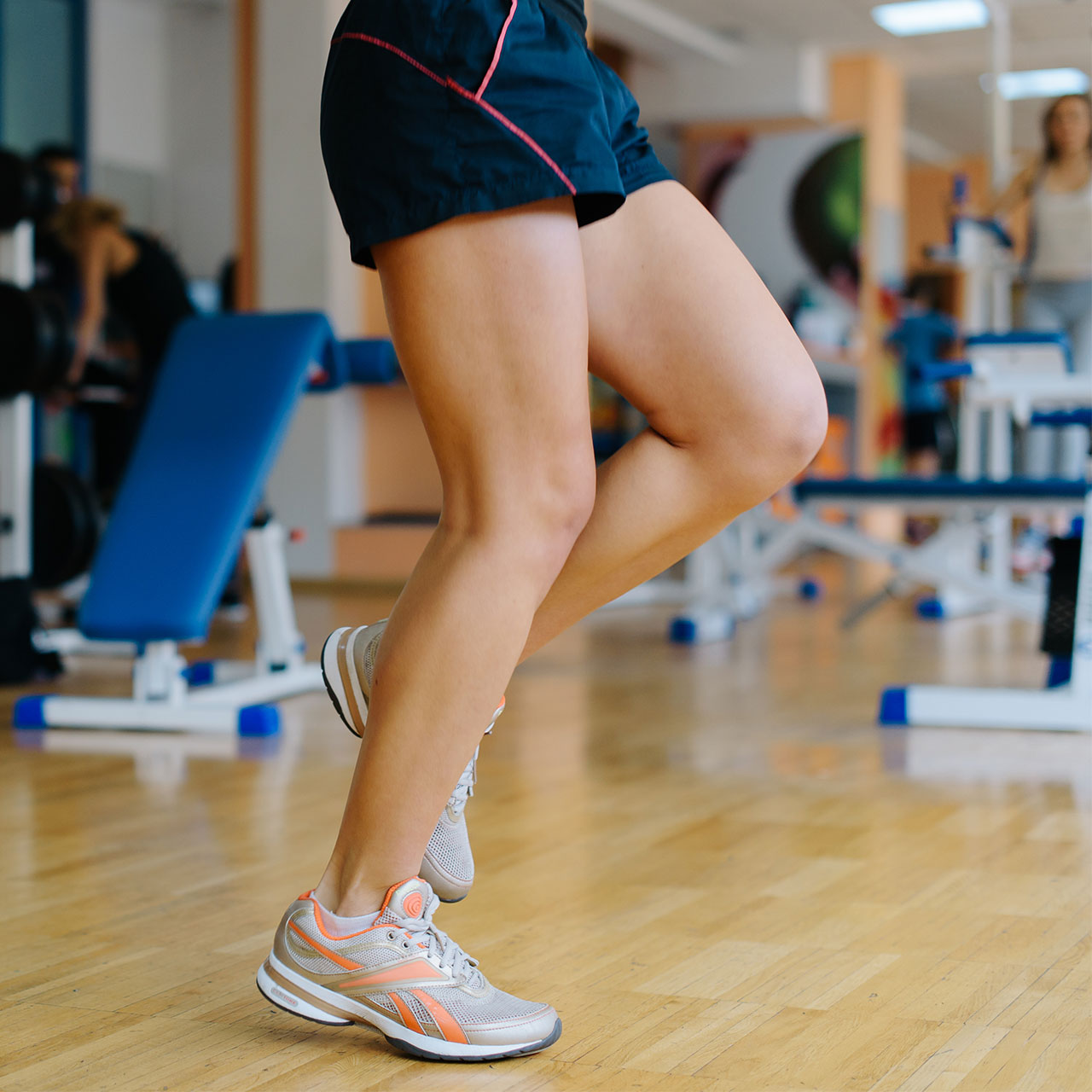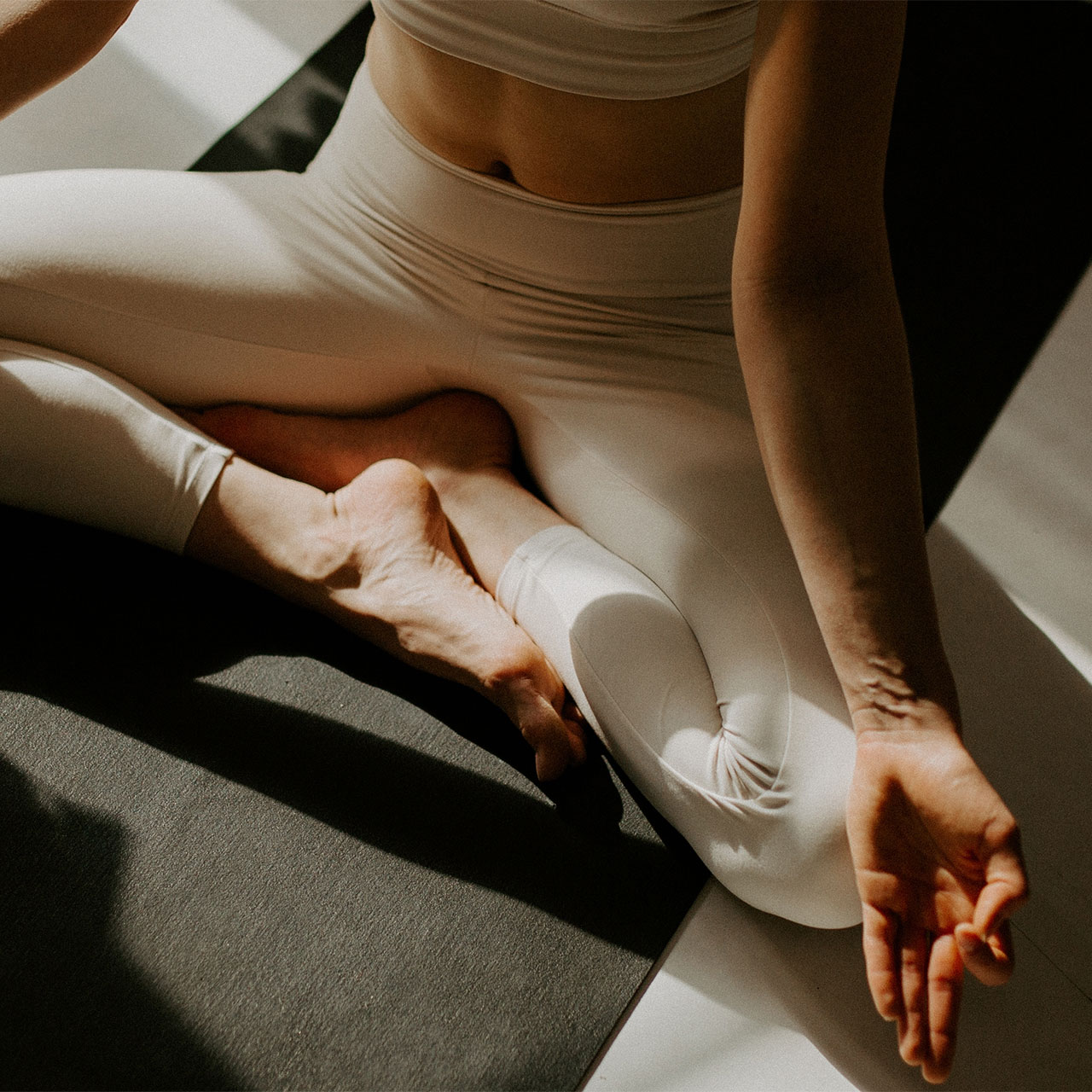A strong and toned midsection, back, and sides not only contribute to a sculpted physique but also provide essential support for daily movements and posture. Targeting these areas with a well-rounded exercise routine can lead to improved stability, reduced risk of injury, and enhanced overall strength.
We spoke with Andrew White, a NASM-certified personal trainer and the co-founder of garagegympro.com, to learn about 11 workouts you can start doing to tone up your midsection, back, and sides. White revealed that planks, Russian twists, deadlifts, bird-dog, and many more are some of the most effective ones. Read on to learn more.

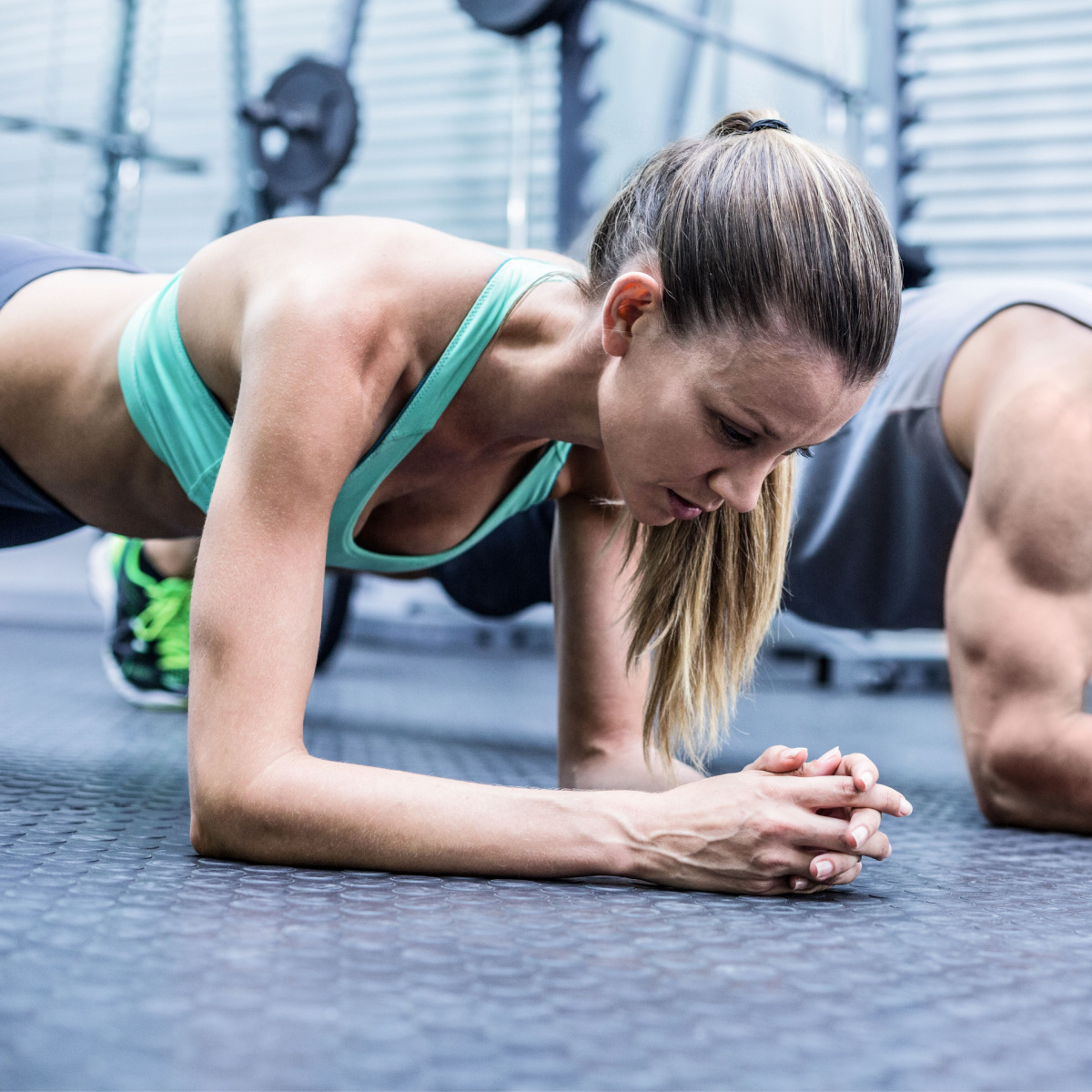
Planks
Planks are a foundational exercise renowned for their ability to sculpt and tone the midsection, back, and sides. This deceptively simple isometric movement engages the entire core, activating muscles such as the rectus abdominis, transverse abdominis, and obliques.
"Planks are a staple in any core workout routine for good reason. Planks are a comprehensive exercise that targets the entire core, including the midsection, back, and sides. By engaging the deep core muscles, planks help in building endurance and strength throughout the core," says White.
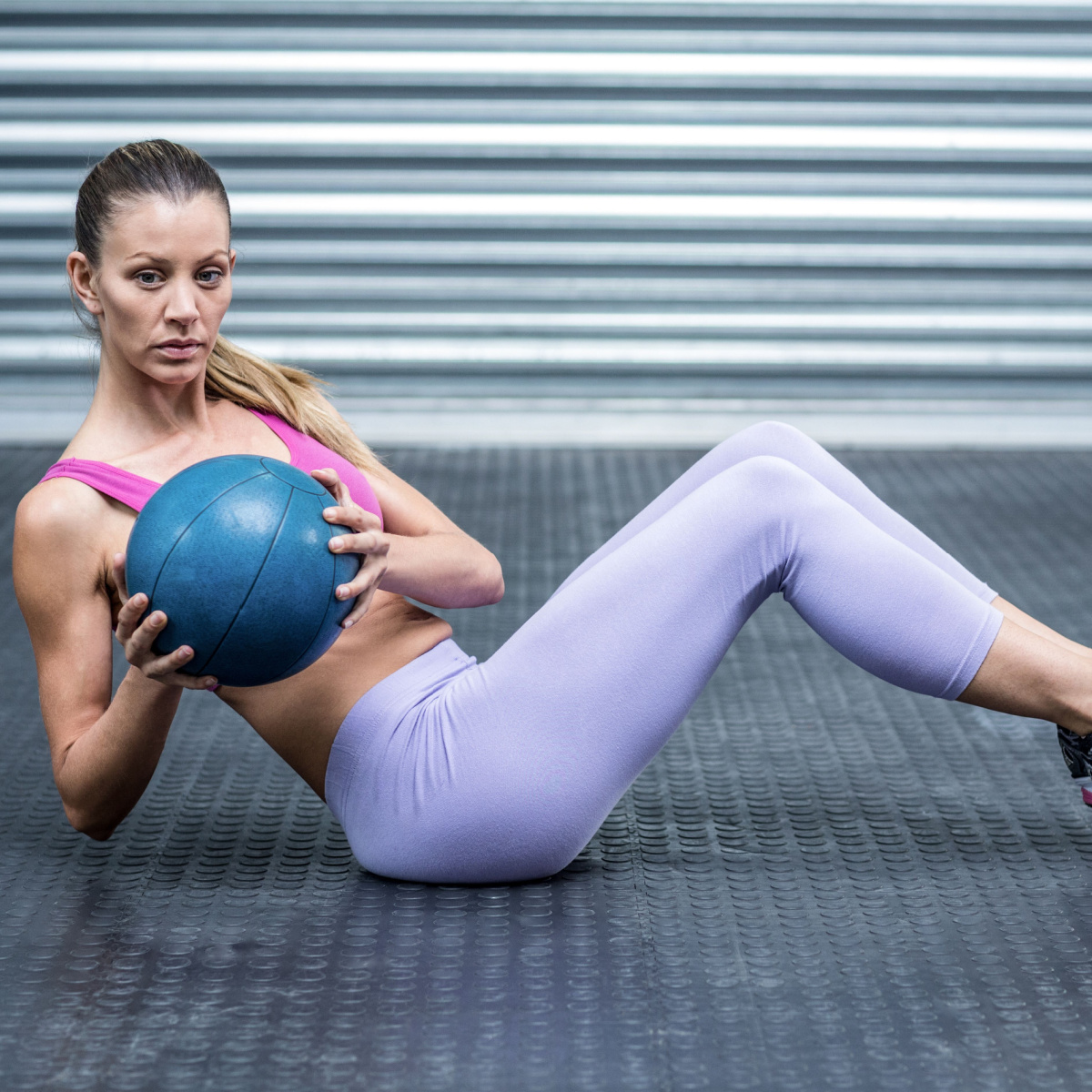
Russian Twists
This rotational movement engages the rectus abdominis, obliques, and transverse abdominis, creating a comprehensive workout for the core. The twisting motion not only targets the front of the abdomen but also activates the muscles along the sides, particularly the obliques, contributing to a sculpted waistline.
White says, "When it comes to targeting those stubborn love handles, Russian twists are my go-to exercise. By twisting from side to side while holding a weight, you engage the oblique muscles, helping to sculpt and define the waistline."
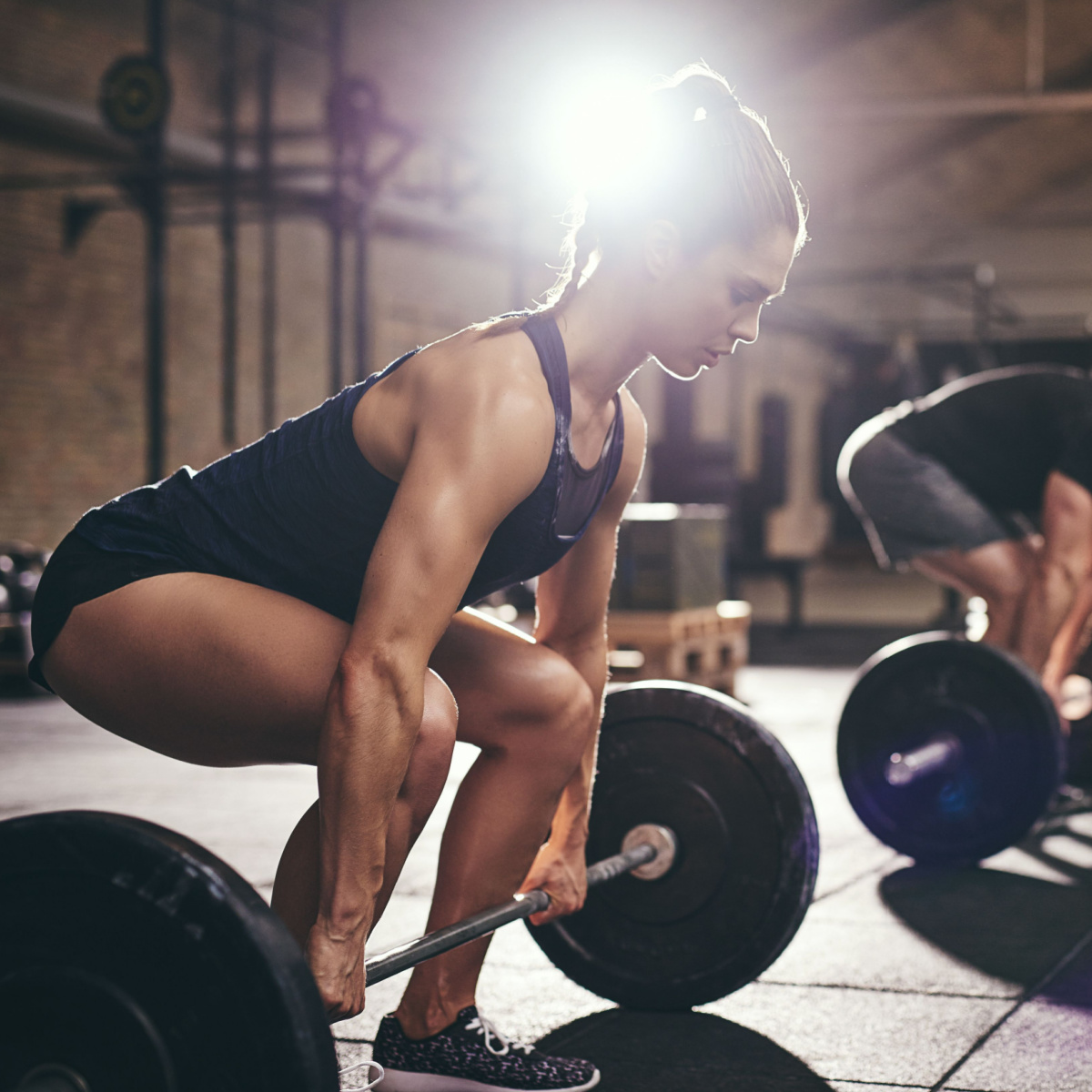
Deadlifts
Deadlifts are a fundamental compound exercise that not only builds overall strength but also plays a pivotal role in toning the midsection, back, and sides. This full-body movement engages the core muscles, including the rectus abdominis and transverse abdominis, as they work to stabilize the spine during the lift.
"Deadlifts are a powerhouse exercise that not only works the lower back but also targets the hamstrings, glutes, and core. Proper form is key here to prevent injury and maximize effectiveness, so I always recommend starting with lighter weights and focusing on technique before adding more resistance. Deadlifts are great for strengthening the lower back, improving posture, and engaging the muscles along the spine and the lower part of the midsection," says White.
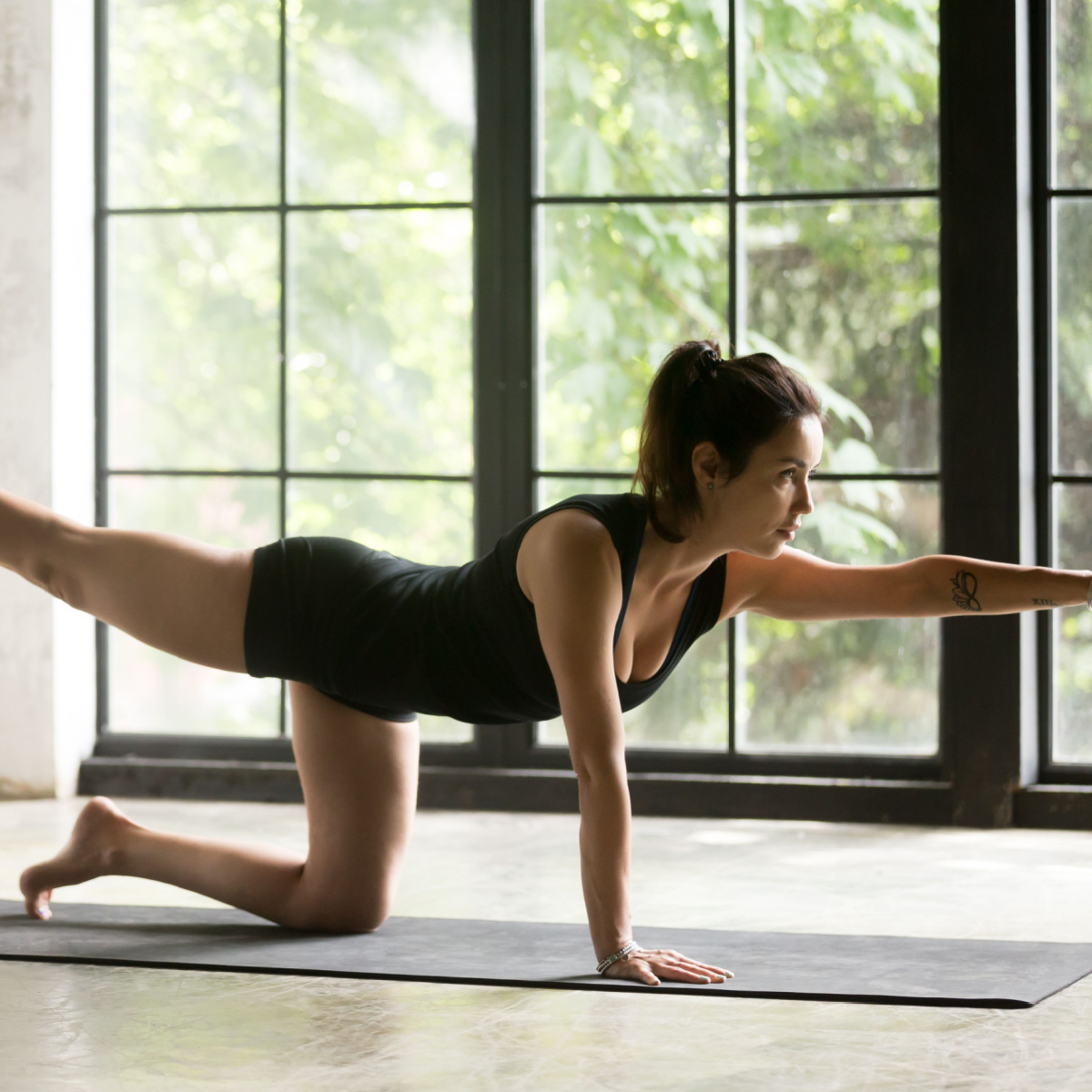
Bird-Dog
The Bird-Dog exercise is a valuable addition to any fitness routine, offering a targeted approach to toning the midsection, back, and sides. This simple yet effective movement involves extending one arm and the opposite leg while maintaining a tabletop position, engaging the core muscles to stabilize the spine.
"For improving stability, balance, and overall core strength, the bird-dog exercise is hard to beat. It targets the muscles along the spine, including the erector spinae, while also engaging the abs and glutes. Plus, it's a great way to activate those deep core muscles that are often overlooked," White states. He also adds that "the bird-dog exercise strengthens the core, lower back, and improves balance and stability by engaging both the back and abdominal muscles simultaneously."
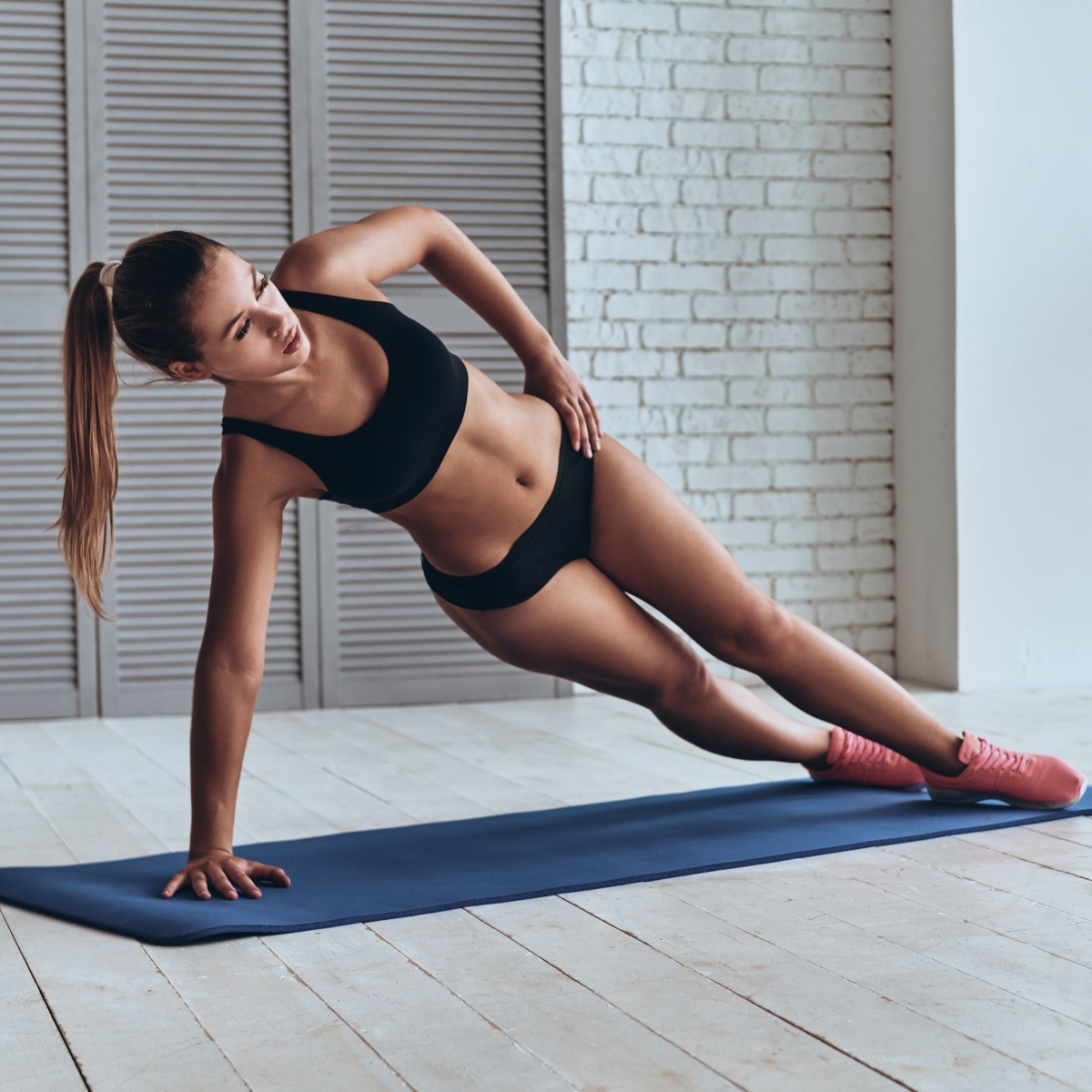
Side Planks
This exercise challenges the core muscles to maintain stability while also working the muscles along the sides of the torso, promoting strength and toning. Side planks not only help sculpt and define the waistline but also improve overall core stability and balance.
White says that "side planks primarily target the obliques, the muscles on the sides of the torso. They also engage the quadratus lumborum and erector spinae muscles in the lower back, promoting lateral stability and strength."
How To Do It: Lie on your side with your legs straight and prop yourself up with your forearm, keeping your body in a straight line. Lift your hips and hold the position for 20-40 seconds on each side.
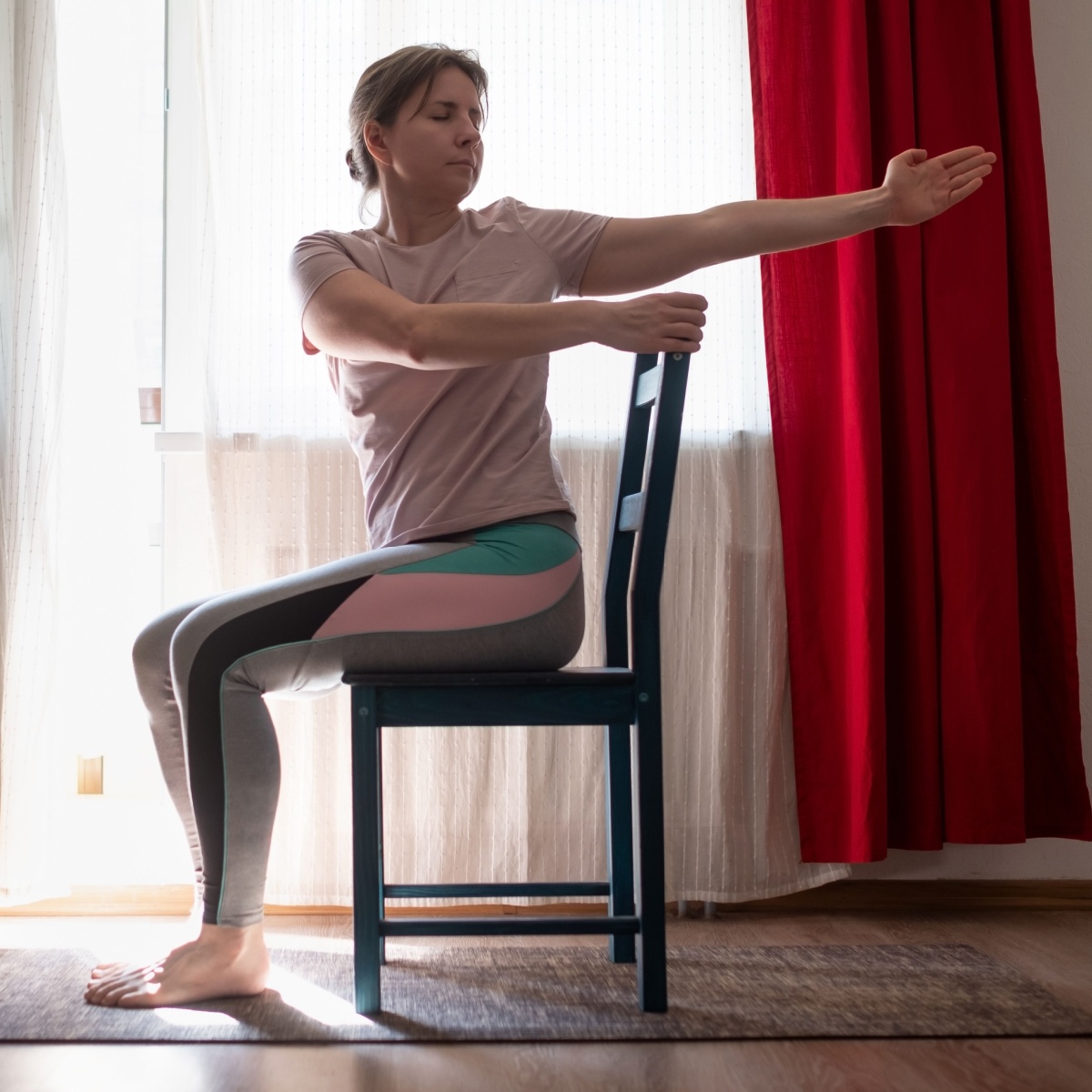
Seated Twists
Seated twists are excellent exercises for targeting and toning the sides, back, and midsection while offering the convenience of being performed in a seated position. By rotating the torso from side to side while sitting upright, individuals engage the oblique muscles, rectus abdominis, and muscles along the spine.
"Seated twists engage the obliques and transverse abdominis, promoting core stability and toning the waistline. They also activate the muscles along the spine, enhancing spinal mobility and posture," he notes.
How To Do It: Sit on a chair with your feet flat on the floor and hold a weighted object with both hands in front of your chest. Rotate your torso to the right, then to the left, keeping your hips and legs facing forward. Perform 10-15 twists on each side.
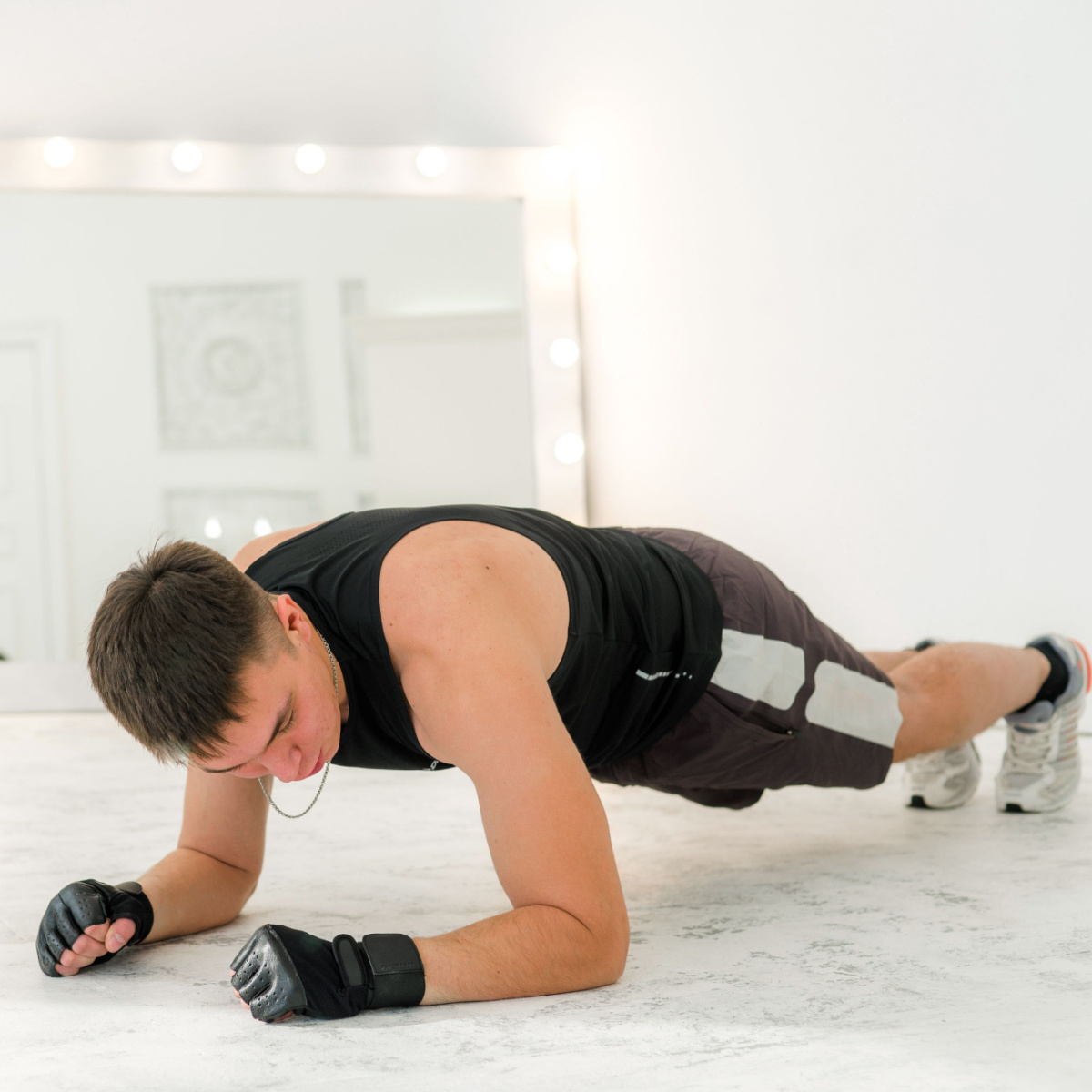
Plank Hip Dips
Plank Hip Dips are a dynamic 2-in-1 exercise designed to target the abdominal muscles and obliques, offering effective assistance in combating flabby stomach and sides. This twisting motion engages the oblique muscles while the plank position activates the entire core, providing a comprehensive workout for the midsection.
White says this workout is a "dynamic variation of the traditional plank that focuses on the obliques while strengthening the entire core. This movement adds a rotational component to the plank, increasing the engagement of the oblique muscles. It also helps in building a stronger, more stable core, which can contribute to a firmer midsection."
White says to follow these steps to properly perform this workout for your belly and sides: Start in a forearm plank position with your elbows under your shoulders and your body in a straight line. Rotate your hips to one side, dipping them toward the floor. Return to the center and then dip to the other side. Perform 3 sets of 10-15 dips on each side.
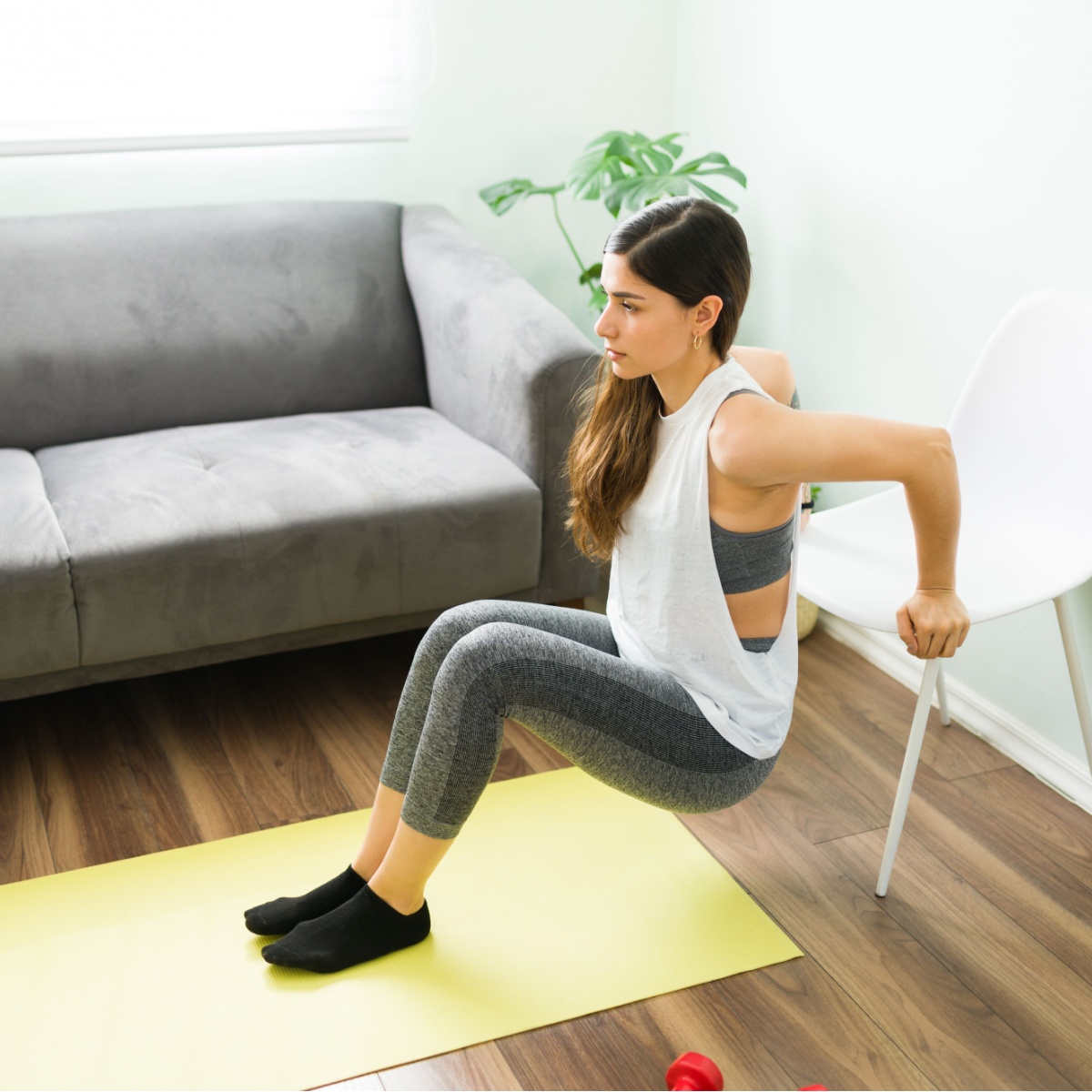
Chair Dips
Chair dips are a valuable addition to a fitness routine for individuals aiming to slim down excess fat in the back and sides. This exercise primarily targets the triceps, shoulders, and the muscles of the upper back, contributing to improved strength and tone in these areas.
"Chair dips work the triceps and the muscles across your upper and lower back, helping to reduce back fat," he notes.
How to perform: With your back to the chair, place your hands on the seat behind you, fingers pointing towards your body. Extend your legs forward, and slowly lower your body by bending your elbows, then push back up.
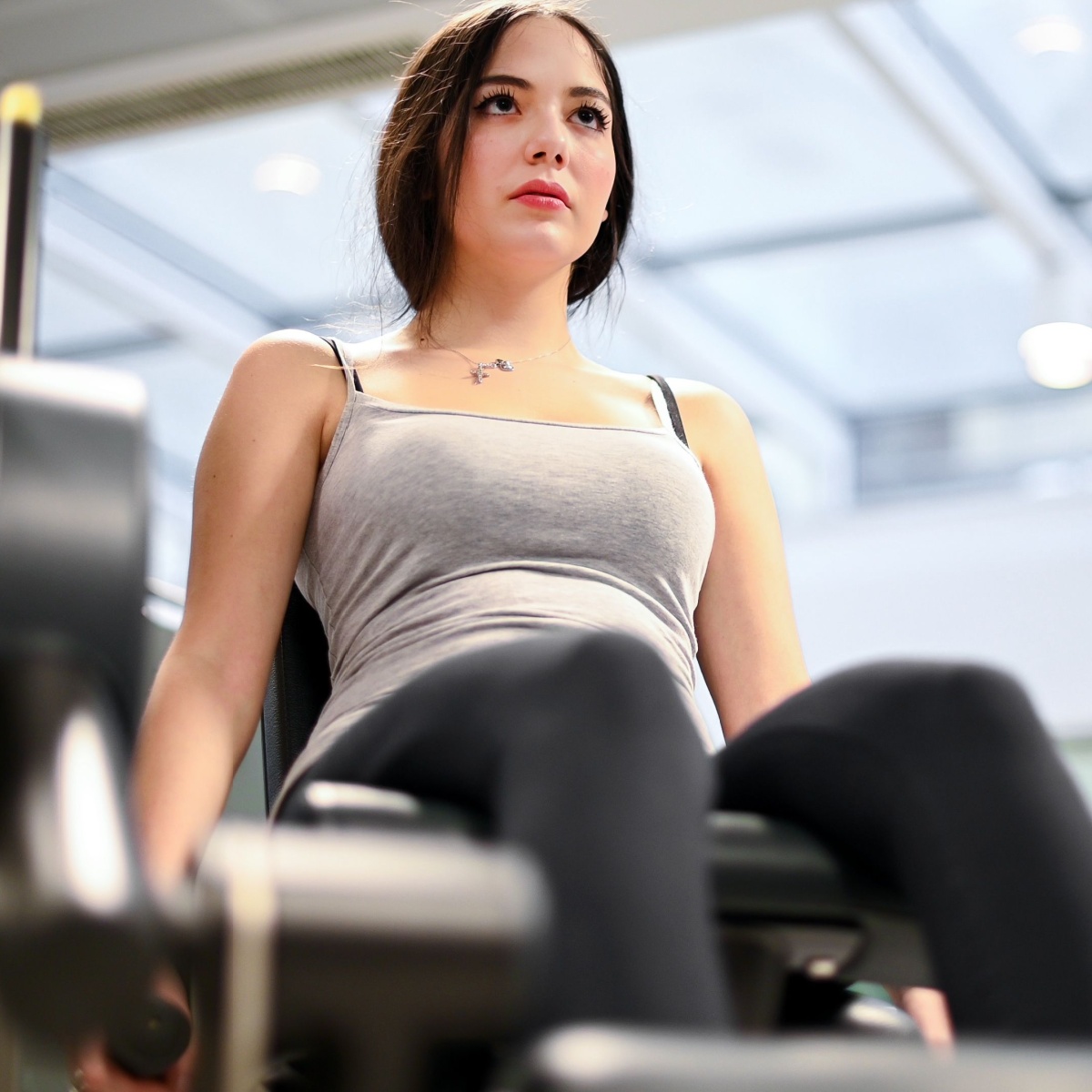
Seated Leg Lifts
Seated leg lifts offer a targeted and accessible chair exercise that aids in slimming down fat in the back and sides. This workout focuses on engaging the muscles of the lower abdomen, hips, and thighs, promoting strength and toning in the core and lower body. As these muscle groups are activated, they help increase overall metabolism.
"This exercise engages the core and improves posture by strengthening the back muscles," White states.
How to perform: Sit upright with your feet flat on the ground. Straighten one leg at a time and lift it as high as possible, keeping your back straight. Hold for a few seconds before lowering it back down.
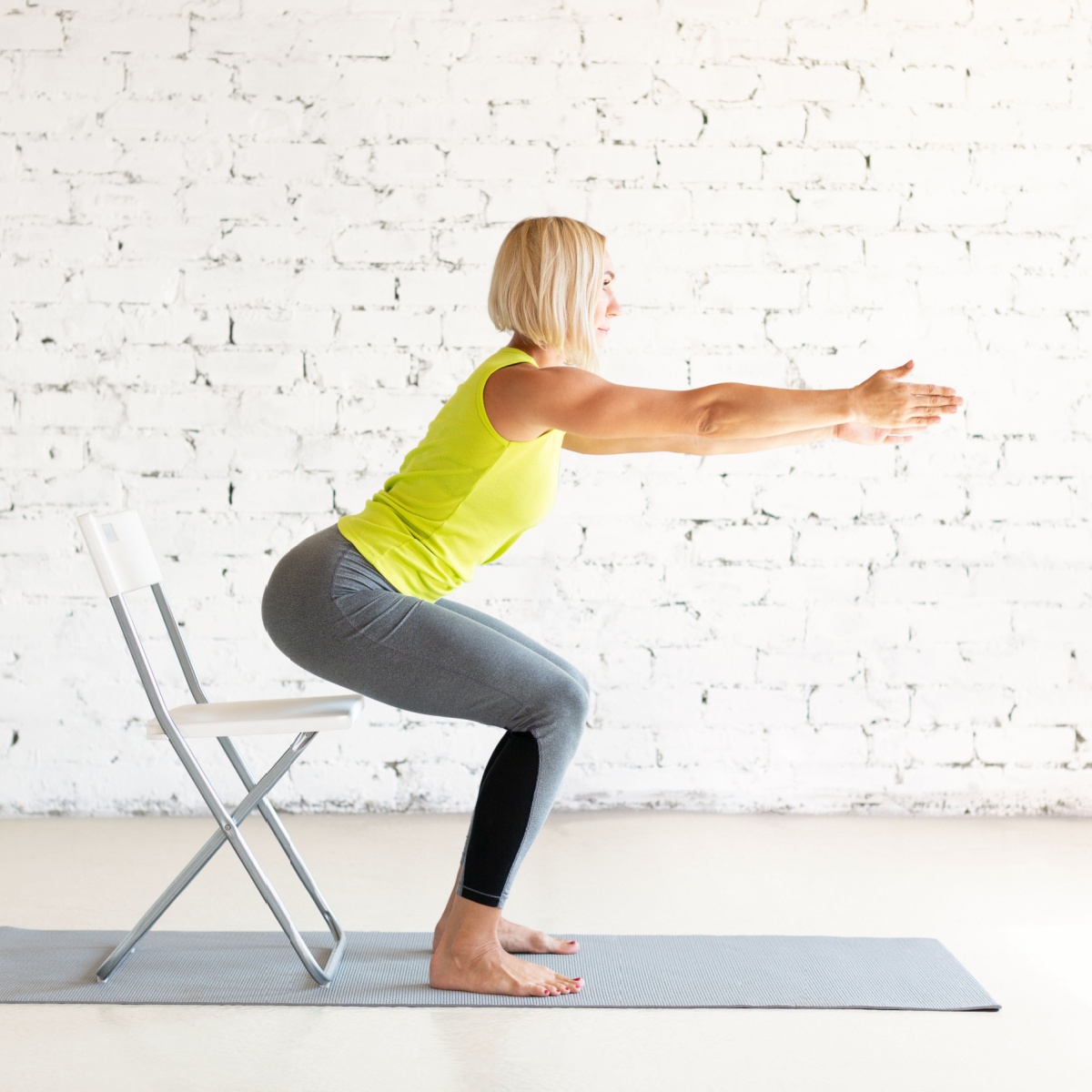
Chair Squats
Chair squats provide a low-impact yet effective way to engage large muscle groups, aiding in the improvement of overall metabolism and calorie burning.
White says this exercise "targets the lower back, glutes, and thighs, helping to strengthen and tone these areas."
How to perform: Stand in front of a chair with your feet shoulder-width apart. Lower your body as if you are going to sit, barely touching the chair's edge, then stand back up.
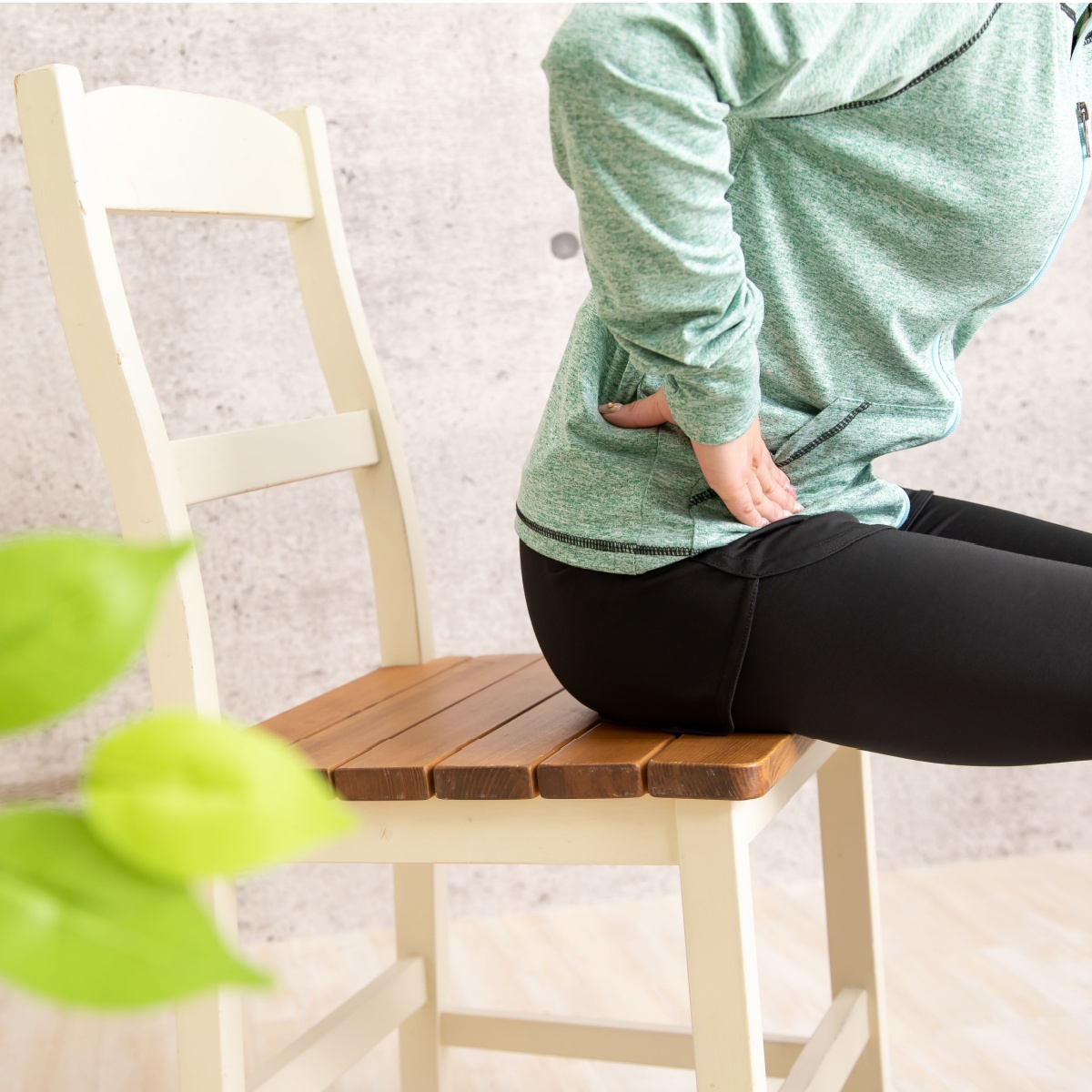
Seated Bicycle Crunches
This exercise engages the abdominal muscles, including the obliques, while seated, providing a low-impact alternative for those with mobility concerns. Seated bicycle crunches promote core strength and stability, helping to tighten and tone the muscles around the waistline. By targeting the sides and back, this exercise contributes to the reduction of excess fat deposits in these areas.
White says the benefits of this workout is that it "targets the core, especially the obliques, aiding in the reduction of side fat."
How to perform: Sit on the edge of a chair, lean back, and hold onto the sides for support. Lift your knees towards your chest and then extend one leg out at a time, alternating sides, mimicking a bicycle pedaling motion.


